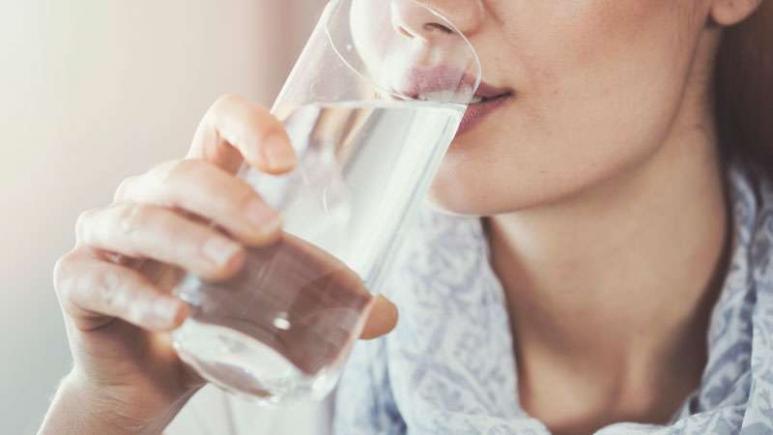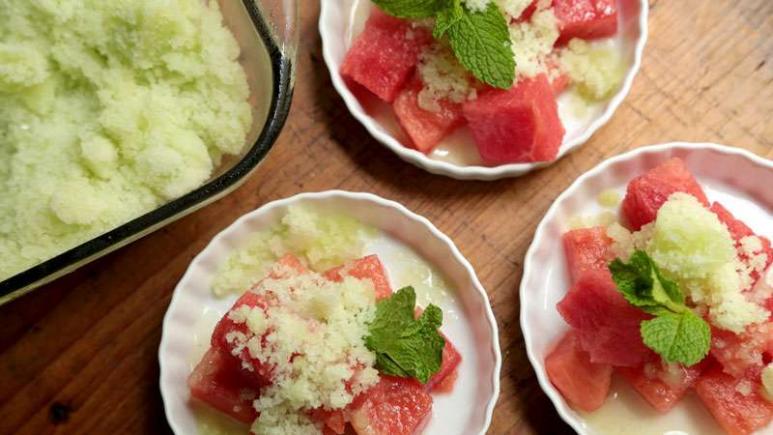

Drink THIS When You're Tired, So You Don’t Have to Always Rely O…

Q&A with Organizational Pro Peter Walsh + Dermatologist Shares A…

Actor Hank Azaria + Freezer Meals + Artichokes 2 Ways with Rach

See Inside Barbara Corcoran's Stunning NY Apartment + It's Steak…

The Best Moments From 17 Seasons of the Show Will Make You Laugh…

How to Make Chicken and Lobster Piccata | Richard Blais

Donnie Wahlberg Spills Details About NKOTB's First Ever Conventi…

Donnie Wahlberg + Jenny McCarthy Say Rach Is Such a "Joy" + Look…

How to Make Crabby Carbonara | Rachael Ray

Rach Chats "Firsts" In Flashback From Our First Episode Ever In …

How to Make Tortilla with Potatoes, Piquillo Peppers and Mancheg…

How to Make Sesame Cookies | Buddy Valastro

How to Make Apple-Cider Braised Pork Chop Sandwiches with Onion …

Rach's Chef Pals Say Goodbye to Show in Surprise Video Message

Celebrity Guests Send Farewell Messages After 17 Seasons of the …

Andrew McCarthy Teases Upcoming "Brat Pack" Reunion Special

How to Make Spanakopipasta | Rachael Ray

Michelle Obama Toasts Rach's 17 Years on the Air With a Heartfel…

How to Make Shrimp Burgers | Jacques Pepin

Andrew McCarthy Chokes Up Discussing Emotional Trip to Spain wit…

Celebrity Guests Send Farewell Messages After 17 Seasons of the …
We’ve all heard the age-old advice: drink eight glasses of water a day to stay hydrated! But what if that isn’t actually true?
Quench: Beat Fatigue, Drop Weight, and Heal Your Body Through the New Science of Optimum Hydration, a new book by Dr. Dana Cohen and anthropologist Gina Bria, dispels some of the common myths about hydration—including some CRAZY things that can cause dehydration!
WHAT IS DEHYDRATION?
Dehydration happens when your body is losing more fluid than it’s consuming. Some doctors think nearly 75 percent of Americans are dehydrated!
When you’re dehydrated, your body has to work harder to function. This means you might find yourself feeling fatigued, sleeping poorly, or in a crummy mood. Worse yet, Cohen and Bria’s research leads them to believe that chronic dehydration can cause joint pain, type 2 diabetes, and even chronic diseases like fibromyalgia. Need an energy and hydration boost? Try Dr. Oz's energy-boosting water!
WHY AM I DEHYDRATED?
Dehydration is more complicated than just drinking tons of water. In fact, many environmental factors can dehydrate you, too. You won’t believe the list:
Your Cell Phone + Other Electronics
The authors claim screen time can cause dehydration. Cohen and Bria attribute this to the amount of heat these devices emit. Their recommendations? Use your devices in “blue-light” mode, as it’s cooler, and make sure that you’re working in natural light as much as possible. Additionally, use your phone’s speakerphone option as much as you can. (Plus, here's why you should STOP bringing your phone into the bathroom with you.)
RELATED: The Best Way to Fight (and Feed) Cravings
Over-the-Counter Medications
Next time you pop a Benadryl for allergies, consider upping your water intake with it, says Cohen. The FDA has a massive list of seemingly harmless medications that cause dehydration—including “safe” medicines like aspirin or Tylenol. If you have to pop a dehydrating pill, make sure to keep your hydration in mind.

Sitting
Say what? You read that right. Immobility alone is enough to dehydrate you. According to Quench, “[immobility] slows down or squelches water delivery into cells.” (Cohen recommends checking your posture every hour and taking 10-15 minute walks throughout the day, ideally outdoors.)
Your Car
Surprisingly, transportation is SUPER dehydrating! Planes are the worst (they have less than 20 percent humidity—a healthy number is 50 to 60 percent!), but cars can be harmful to hydration too. “For every hour you spend in a car, you reduce your hydration by exchanging moist air for dry, deoxygenated air,” the book says. To combat this, Cohen and Bria recommend always carrying something to drink in the car and opening the windows periodically to allow fresh air to circulate. Snacking in the car (ideally on one of the super-hydrating foods listed below!) can also be a good idea for curbing dehydration.
WHAT SHOULD I DO IF I’M DEHYDRATED?
Despite what we’ve all been told, eight glasses of water a day isn’t the way to optimal hydration! Cohen and Bria say that most of our hydration should come from the foods we eat, especially food that are high in “gel water.” Gel water is a newly-discovered type of water that doesn’t flush through your body like regular water which means it’s more easily absorbed.
Cohen and Bria’s book outlines a comprehensive plan for improving hydration, but in the meantime, you can focus on eating loads of foods that absorb hydration and “activate the charge of water molecules.”
A few of their favorites: alfalfa sprouts, grass-fed butter, cucumbers (loads of gel water—try the cucumber and watermelon granita shown below!), coconut water, and cashews (try them in this vegan pasta recipe).



